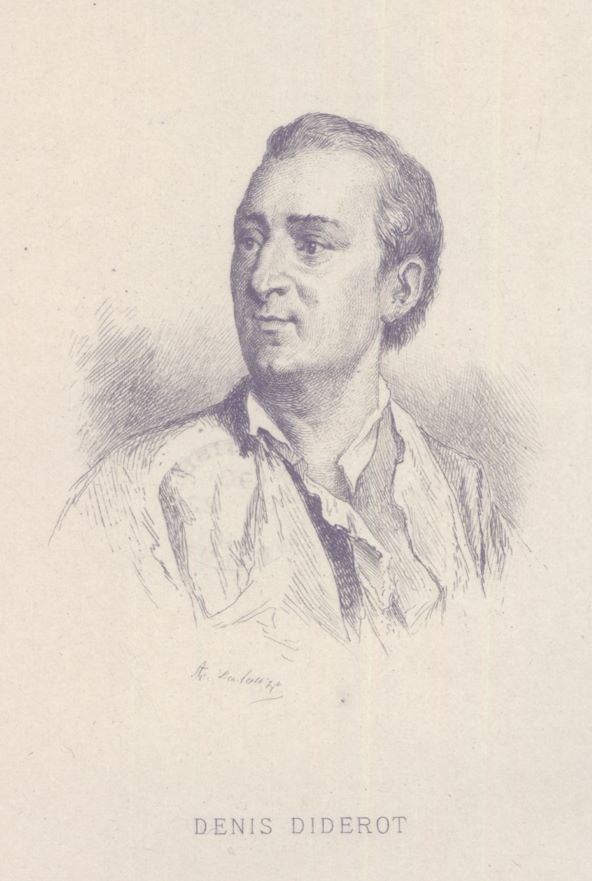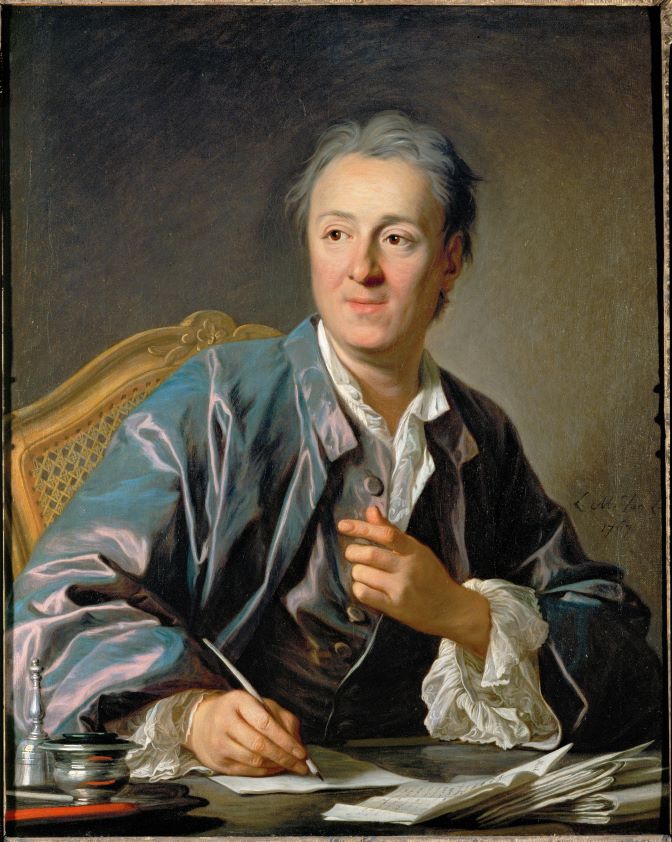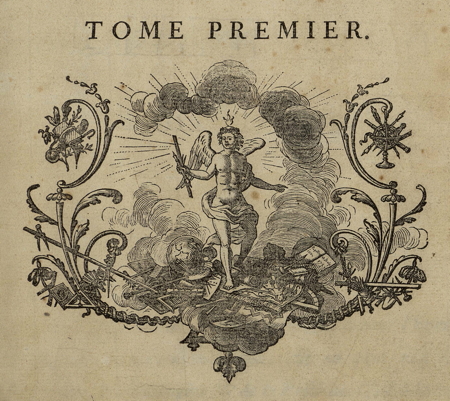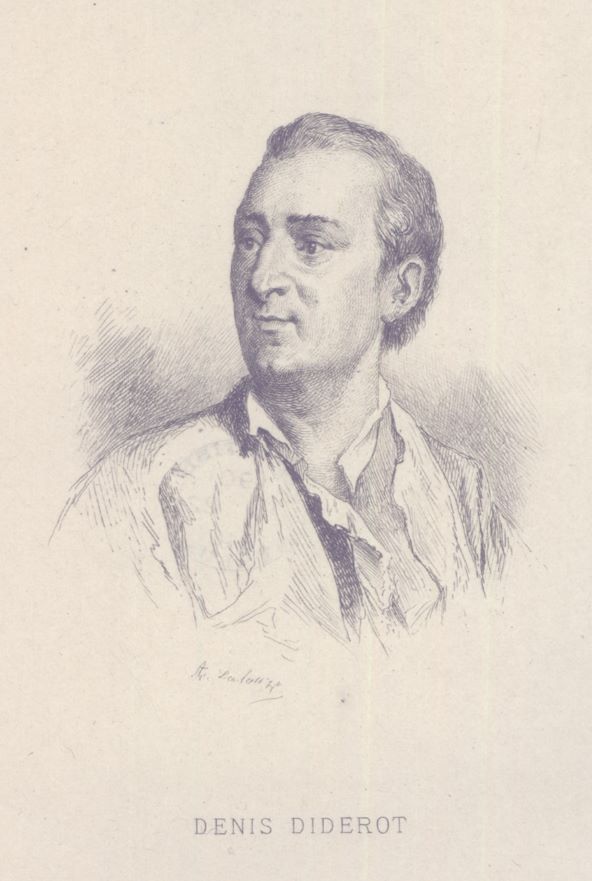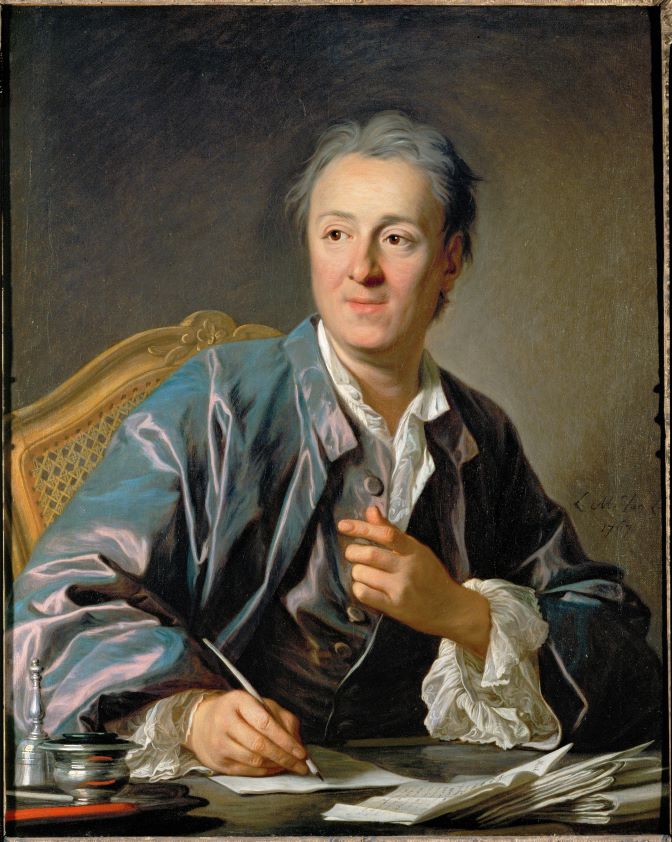The
Encyclopédie referred to here was a multivolume compilation edited by Denis Diderot and Jean Le Rond d'Alembert starting in 1751 that did double duty--as a massive reference work full of factual and up-to-date information on every possible topic and as a "war machine" (Diderot's term) for wide-ranging enlightened reform.
[1] Its 73,000 or so articles included a fair number of entries on expressly political topics. How radical was the doctrine contained in those entries?
The question is as old as the work itself. To the authorities, that compendium--by some measures the most important publication project of the 18th century--began and remained plenty radical. Right away in 1752 and again in 1759, the French Church and state banded together to discontinue its publication, briefly in the former case, indefinitely (for several years, as it turned out) in the latter.
[2] The religious and political content of the work, as well as the domestic and even international controversies that seemed to crop up around it, made it a lightning rod, perhaps even a scapegoat, for many of the tensions of the day.
Across the Channel, meanwhile, Adam Smith spent nearly a third of the University of Glasgow's library budget acquiring the first seven volumes, while defending its innocence and clearly drawing on some of its contents in drafting his own work.
[3] The English legal compiler Owen Ruffhead thought that "Whoever takes the trouble of combining the several political articles, will find that they form a noble system of civil liberty."
[4] Edmund Burke, on the other hand, writing during the French Revolution, detected in it a cabal of "men of letters" who, no longer as influential as they had been under Louis XIV, hatched a conspiracy for nothing less than "the destruction of the Christian religion."
[5]
Recently, our question has taken a different turn. As part of his revisionist project on the Enlightenment--a project that hinges upon redefining its religious, metaphysical, and political commitments in roughly equal measure
[6] --Jonathan Israel has argued that the
Encyclopédie, under Diderot's guiding influence, gave a major impetus to an essentially Spinozistic combination of atheism, materialism, and democratic egalitarianism central to the age as a whole. He sees a "decisive shift to radical ideas" on the part of Diderot and his circle in the years just before his editorship began (1748-51). He asserts that, despite d'Alembert's promise in the lengthy "Preliminary Discourse" (1751) of a Baconian project of useful empirical knowledge, this goal was "in no way reached," partly because Diderot was himself opposed to such Baconianism. Instead, this Anglo-centered model ended up being "squeeze[ed] ... into a subordinate, marginalized status" under Diderot's influence. Politically in particular, the
Encyclopédie did not "reflect the views and perspectives" of the main French followers of this English mainstream, especially Voltaire and Montesquieu.
[7]
Not unlike the argument as a whole, this latter claim surprised many readers, since the centrality of Voltaire and Montesquieu to the mid-century Enlightenment has long been taken for granted. In a study that uses data-mining techniques on word-searchable texts such as the
Encyclopédie, authors associated with the ARTFL
[8] Encyclopédie database at the University of Chicago have disputed Israel's conclusions. Though they document a "'subversive style' of non-citation" in the work, they find little evidence of "Spinozist philosophy," instead concluding that the
Encyclopédie as a whole "was overwhelmingly tilted toward such authors as Voltaire and Montesquieu."
[9]
The pitfalls in venturing a general answer to our question are formidable. Unlike a standard, single-author work--which, of course, can harbor its own ambiguities--the Encyclopédie was rolled out sequentially over a 14-year period, one that saw significant changes in both France and Europe. The editorial "line" was not necessarily identical in 1765 to what it was in 1751. Moreover, what kind of editorial "line" was even possible for such a work? There were somewhere between 140 and 160 contributors to the project as a whole. Although Diderot could at times be an active, hands-on editor, he was also inevitably at the mercy of the different authors whose contributions he needed to fill out the volumes in a timely fashion. There is thus a certain irreducible pluralism attending its composition.
It is useful in this light to wonder what a casual, ordinary 18th-century reader might have experienced in browsing through a work which, after all, few would have read straight through. Though doubtless artificial, this exercise bids us to notice the eclectic variety of perspectives actually present in the texts. One such perspective is a certain pronounced strand of "conservatism" (for want of a better term) that tends to be forgotten today.
[10] Take the case of Antoine Gaspard Boucher d'Argis.
[11] Legal scholar and jurist, Boucher d'Argis contributed the rather staggering figure of some 4,500 articles out of the 73,000 total, making him well and truly the in-house expert on all things legal. It is normally said of Boucher d'Argis that the majority of his entries were primarily descriptive rather than prescriptive, so he is often overlooked in discussions of political thought. But lucid summaries of countless aspects of legal history and practice, however dry in presentation, might have been informative and interesting to many contemporaries, as indeed they continue to be to us. Moreover, our casual reader might have noticed that the author could embed his policy preferences in his dry descriptions, more often than not for the "conservative" purpose of urging government to perform its traditional duties. In his entry on "Loix somptuaires" ("Sumptuary laws"), to take one example, the jurist caps an historical survey, ancient and modern, by recommending that "all these sumptuary laws should be observed in order to repress luxury" in all its forms.
[12]
It is worth noting, too, the circumstances under which Boucher d'Argis was welcomed onto the team of contributors. It happened only with volume three, shortly after the first of the two above-cited controversies that threatened to shut the whole project down. So his inclusion may perhaps be viewed as an implicit compromise by the editors, part of a continual give-and-take with the authorities that stretched over many years.
[13] It is important not to lose sight of this give-and-take because it did much to shape the parameters of acceptable discourse within the 17-volume enterprise as a whole. Since some of Diderot's most famous works today are audacious works of the imagination that were only published posthumously, it is easy to be drawn into speculations as to what his "real" political commitments may have been. The benefits of these speculations, however, have their limits, since it was the text itself of the
Encyclopédie that became a best-seller.
[14]
Early on in the project, Diderot seems to have developed an intuition as to what the acceptable boundaries of discourse were likely to be. His article on "Autorité politique" ("Political Authority"), which appeared in the first volume, stirred up a storm for its opening salvos in defense of limited government based on individual consent. By the end of that same article, it had emerged that "obeying, honoring and fearing their master" is a political obligation for French subjects.
[15] Sardonic irony or tactical retreat? Contemporaries wondered, and so can we.
[16]
But the case for taking such moments of apparent "conservatism" seriously is not a negligible one. At the end of a generally sympathetic treatment of "Democracy," for example, the Chevalier de Jaucourt--drawing mostly on Montesquieu
[17] --closes with a cautionary note: "it is quite rare," he writes, "that a
democracy is able to save itself for long from these two shoals"--that is, from aristocratic inequality and despotic equality. Such a conclusion bespeaks, it would seem, an altogether classical suspicion of popular government. In "Government," too, Jaucourt treats constitutions as organic entities, which "carry within them the principle of their destruction." While a return to first constitutional principles is possible, it is by no means guaranteed because "After growing and expanding, states then tend toward their decline and their dissolution."
[18] In the entry on "Republic," likewise, Jaucourt does nothing to evade Montesquieu's scathing indictment of the contemporary Italian states of that form; indeed he highlights it, concluding with the latter's argument that "a prince's tyranny does no more to ruin a state than indifference to the common good does to ruin a republic."
[19]
In "Innovation," with language that could almost have been used by Burke, Jaucourt writes that "a novelty that has its advantages and disadvantages, and that is brought in to replace current abuses without mature reflection, will never fit with the fabric of a timeworn part because it is not matched to the piece."
[20] Likewise in the four-line entry on "Corruption publique" ("Public Corruption"), Diderot offers the pointed reminder that it is easier to abolish "bad" laws than to assure compliance with good ones since the latter depends inescapably upon "private integrity."
[21] So readers would have found plenty of classically inspired hesitations about sudden and radical change and about popular government.
It is true that the
Encyclopédie was the venue for Jean-Jacques Rousseau's long, seminal essay that we now know as the "Discourse on Political Economy," appearing under the title "Economie ou Oeconomie" in 1755 and offering a trial run, as it were, for the far-reaching notion of the "general will" that would claim center stage in
Du Contrat social (
The Social Contract) seven years later. But it is also true that in a later volume, Diderot included an even longer article with a similar title, "Oeconomie politique," written by the speculative theorist of prehistoric antiquity Nicolas Antoine Boulanger, offering a much more favorable evaluation of modern monarchy. Contrary to Rousseau's argument that life in the state of nature was in many ways healthier, nobler, and freer than in modern societies, Boulanger's multilayered essay painted a picture of modern, law-abiding monarchy as a long-gestating solution to the pathologies of all ancient life.
[22]
This episode raises a second general point, also not incompatible with a certain "conservative" reading of this collection. The late Istvan Hont suggested that the 18th century as a whole was not so much an age of republicanism as an age when a modern form of monarchy became a respected polity.
[23] Whatever one may think of the idea in general, it is certainly consistent with Boulanger's essay, and there are other ways too in which the modernization of the existing regime, rather than its replacement by one of different type, is manifest in the
Encyclopédie. Our casual reader might have noticed multiple, periodic forays into the arena of what might simply be called "good government" advocacy.
In "Arithmetique politique" ("Political Arithmetic"), for example, Diderot sets up a sharp contrast between the new practice--Baconian in spirit--of carefully compiling demographic and economic statistics "useful for the art of governing people" and the more typical (unnamed) government minister so infatuated with his own "natural genius" that he feels he can dispense with such information.
[24] By drawing on the work of the 17th-century Englishman William Petty, Diderot conveys the impression that this particular contribution to good government is an English import (although French governments had, for good or ill, been refining their information-gathering techniques for some time).
[25] There are a number of entries on political economy, in fact, in which the Dutch and especially the English are taken as tutors initiating French latecomers into the modern art of promoting prosperity--Forbonnais's "Compagnie de Commerce" ("Trading Company"), for example, or Faiguet de Villeneuve's entry on the utility of private savings.
[26]
The assumptions behind populationism, or natalism, also account for a whole raft of arrows in the "good government" quiver. When contemporaries thought about enriching their societies, as they increasingly did, they were as likely to advocate measures to increase population as to raise the individual standard of living. Such thinking is highly prominent in the political thought of the Encyclopédie--"population" taking up nearly a full column in the Index of Encyclopedic Liberty. Even the constant drumbeat of attacks against the religious monopoly, censorship, and persecution associated with the Catholic Church may be viewed, in part, as so many attempts to "catch up" to the socially useful discovery made already in the 17th century by the Dutch and English--and to a certain extent more recently by rivals such as Frederick II (the Great) of Prussia--that a country could become more populous, and therefore richer, more powerful, and even happier, by welcoming religious minorities. It was the ultimate in contemporary "best practices." And more generally, the Encyclopédie turned out to be an excellent vehicle for promoting this whole, essentially recuperative brand of reformism.
The foregoing, of course, in no way denies that there were many bold, far-reaching, perhaps even radical political ideas found in Diderot's Dictionary. After all, the project was at various times publicly denounced, censored, and twice discontinued. To the extent that the buzz surrounding the work would have primed readers to seek out its novelties, we might assume that they would have been more rather than less likely to find them than in the absence of such buzz. There can be little doubt that many of our "casual readers" would have been Burkeans avant la lettre in their shocked responses to the coverage of topics such as the religious foundations of monarchy, or that many others would have thrilled to the new language of freedom and political accountability they contain.
The Diderot biographer Arthur Wilson once argued that the
Encyclopédie is essentially Lockean in the main orientation of its political thought.
[27] Although it seems a tad schematic today, there is no denying the frequency with which ideas such as natural liberty, individual consent, and popular representation make their way into the articles--entries such as "Etat de nature" ("State of Nature"), "Gouvernement" ("Government"), and "Pouvoir" ("Power") clearly sound these themes. The word "égalité" appears over 600 times in the collection, and "liberté" nearly 3,000.
[28]
But even bold, Lockean-sounding ideas were not necessarily entirely unmoored from any monarchical framework. Take d'Holbach's anonymous essay on "Representatives" ("Representans"), often regarded as one of the most original political essays in the entire collection.
[29] Published at a moment when the King was reasserting his own control over the "rights and interests" of the French people against a restive challenge by the judicial and administrative elite in the
parlements,
[30] d'Holbach's 1765 entry seems audacious enough: a nation, he asserts, is represented not by privileged orders or hereditary powers of Church or nobility, but by "elected citizens who in a limited government are charged by society to speak in its name." While it might once have been acceptable for an "absolute monarch" to govern by the tacit consent of the people, buttressed by the above-named estates, times have changed; utility as defined mainly by economic production is now a better standard.
[31]
That seems like a straightforward, radical call for popular representative government. But even if we declare d'Holbach to be a forerunner of abbé Siéyès' new "revolutionary representation," which is by no means a foregone conclusion, it is useful to recall how manifold were the attempts to anchor the various traditional French bodies in new forms of "social representation" throughout the century, almost invariably within the framework not of a republic but of a decentralized, legally bound, liberalized monarch.
[32] The anonymous article "Intendants" ("Intendans") is a good example of the genre in
Encyclopedic Liberty.
By far the most active conveyor belt for reformist political ideas in the
Encyclopédie was the aforementioned Chevalier Louis de Jaucourt. In a steady output that dwarfed that of the already prolific Boucher d'Argis at roughly 17,000 articles, the French Huguenot nobleman familiarized his readers not only with Locke, but with Sydney, Harrington, Thomas Gordon, and others in a broadly republicanizing orbit.
[33] He had spent decades in Switzerland, Holland, and England, clearly admired many aspects of these decidedly non-absolutist regimes, and did much to incorporate some of the ideas and political practices learned there into his countless entries.
[34]
Most notably, though, it was through the sieve of his close reading of Montesquieu, and especially
The Spirit of the Laws, that Jaucourt offered up his political commentary.
The Spirit of the Laws had appeared three years before the
Encyclopédie commenced publication, and it was as close to an all-purpose, default authority for the project's political articles as one could find. Precious few of the 44 entries by Jaucourt that are included in
Encyclopedic Liberty fully escape its shadow.
[35] But this brings us back full circle. For it is scarcely an exaggeration to say that the overall "radicalism" of the
Encyclopédie depends largely on our assessment of the "radicalism" of the Baron de la Brède.
That is a topic for another discussion, but we can at least conclude with a couple of brief thoughts. First, Montesquieu was "conservative" enough--largely because of his defense of the privileged status of the nobility--to be sidelined from the main currents of Revolutionary debate fairly early on, perhaps by the end of 1789.
[36] Second, he was "radical" enough to get his book condemned by the Sorbonne and placed on the Index by the Papacy.
[37] In addition to these religious reactions, his claim that "virtue" was the predicate for republics but not for monarchies was taken as an oblique attack against the moral foundations of the Bourbon dynasty.
[38] Third, Montesquieu was "moderate" enough to be widely regarded in the Anglo-Saxon world--both in the 18th century and today--as the great apostle of an ordered liberty under the law, with checks and balances against excessive concentrations of power, an idea that seems to enjoy a revival any time stable constitutionalism comes under threat. All of these dimensions of his thought--and then some--make their appearance in the
Encyclopédie, even when they are being revised by their borrowers.
[39] If they fail to bring closure to our question, perhaps that is because that compendium, not unlike
The Spirit of the Laws itself, was "not so much an ideology as a quarry" from which different readers were destined to draw different kinds of inspiration.
[40]
Endnotes
[1.] For these two perspectives, see Frank A. Kafker, "The
Encyclopédie in Relation to the Nine Predecessors," in Frank A. Kafker, ed.,
Notable Encyclopedias of the 17th and 18th Centuries: Nine Predecessors of the Encyclopédie(Oxford: The Voltaire Foundation, 1981), 223-37; updated in
Lexicography: Critical Concepts, ed. R.R.K. Hartmann (London: Routledge, 2003), 39-51, and Philipp Blom,
Enlightening the World: Encyclopédie, The Book That Changed the Course of History (New York: Palgrave Macmillan, 2005).
[2.] See Denis Diderot and Jean Le Rond d'Alembert,
Encyclopedic Liberty: Political Articles in the Dictionary of Diderot and d'Alembert, ed. Henry C. Clark, trans. Henry C. Clark and Christine Dunn Henderson (Indianapolis, IN: Liberty Fund, 2016), xviii-xix.
[3.] See Smith's 1756 "Letter to the
Edinburgh Review," in Adam Smith,
Essays on Philosophical Subjects, ed. W.P.D. Wightman (Oxford: Clarendon Press, 1980; repr. Indianapolis, IN: Liberty
Classics, 1982), 244-48. See also Ian Simpson Ross,
The Life of Adam Smith, 2nd edition (Oxford: Oxford University Press, 2010), 153, and Frank A. Kafker and Jeff Loveland, "L'Admiration d'Adam Smith pour l'
Encyclopédie,"
Recherches sur Diderot et sur l'Encyclopédie, 48 (2013):191-202.
[4.] See the
Monthly Review XXIX (1768), 545; cited in Arthur M. Wilson,
Diderot (New York: Oxford University Press, 1972), 491;
Encyclopedic Liberty, xvii.
[5.] Edmund Burke, "Reflections on the Revolution in France," in
Select Works of Edmund Burke: A New Imprint of the Payne Edition, 3 vols., ed. Francis Canavan (Indianapolis: Liberty Fund, 1999), 2:208-209.
[6.] See Jonathan I. Israel,
Radical Enlightenment: Philosophy and the Making of Modernity (Oxford: Oxford University Press, 2002); idem,
Enlightenment Contested: Philosophy, Modernity, and the Emancipation of Man, 1670-1752 (Oxford: Oxford University Press, 2006); idem,
Democratic Enlightenment: Philosophy, Revolution, and Human Rights, 1750-1790 (Oxford: Oxford University Press, 2011); and idem,
Revolutionary Ideas: An Intellectual History of the French Revolution from The Rights of Man to Robespierre (Princeton: Princeton University Press, 2014). See the H-France Forum, Vol. 9, no. 1 (Win., 2014),
https://h-france.net/forum/h-franceforumvol9.html for an unusually lively and informative exchange.
[7.] Israel,
Enlightenment Contested, 818, 842, 846, 849-50.
[8.] Project for American and French Research on the Treasury of the French Language.
[9.] Dan Edelstein, Robert Morrissey, and Glenn Roe, "To Quote or not to Quote: Citation Strategies in the
Encyclopédie,"
Journal of the History of Ideas, 74, no. 2 (Apr. 2013):213-36; quotes at 215, 235.
[10.] Or is it only in retrospect, precisely
because we know "how the story turned out," that our sense of irony leads us to notice strands of "conservatism" in a work conceived as a "war machine"?
[11.] See "Contributors," in
Encyclopedic Liberty, xxv-xxvi.
[12.] See Denis Diderot and Jean Le Rond d'Alembert, eds
., Encyclopédie, ou Dictionnaire raisonné des sciences, des arts et des métiers, par une Société de gens de lettres (Encyclopedia, or critical dictionary of the sciences, arts and trades, by an Association of men of letters), 17 vols. (Paris: Briasson et al, 1751-65), 15:672-75; quote at 675; cited as
Encyclopédie below. Available in electronic form on the ARTFL website at <
http://artflsrv02.uchicago.edu/cgi-bin/philologic/getobject.pl?c.8:1840:180.encyclopedie0416>.
[13.] For this point, see Frank A. Kafker and Serena L. Kafker,
The Encyclopedists as Individualis: A Biographical Dictionary of the Authors of the Encyclopédie (Oxford: Voltaire Foundation, 1988), 51. (See <
https://artflsrv03.uchicago.edu/philologic4/kafker/navigate/1/19/>.)
[14.] See Robert Darnton,
The Business of Enlightenment: A Publishing History of the Encyclopédie
, 1775-1800 (Cambridge: Belknap Press, 1979).
[15.] See "Political Authority" in
Encyclopedic Liberty, 13-14, 20.
[16.] See Jacques Proust,
Diderot et l'Encyclopédie (Paris: Albin Michel, 1995; orig. pub. 1962), esp. 432 for a summary of possible interpretations.
[17.] Especially books 2 through 5 of
The Spirit of the Laws (1748); see
Encyclopedic Liberty, 78-85.
[18.] See "Gouvernement" ("Government"),
Encyclopédie, 7:788-91, in
Encyclopedic Liberty, 225-38, quotes at 238.
[19.] "Republic,"
Encyclopédie, 14:150-51, in
Encyclopedic Liberty, 555.
[20.]"Innovation,"
Encyclopédie, 8:755, in
Encyclopedic Liberty, 294.
[21.] "Public Corruption,"
Encyclopédie, 4:278, in
Encyclopedic Liberty, 77.
[22.] See
Encyclopedic Liberty, 397-448.
[23.] Istvan Hont,
Politics in Commercial Society: Jean-Jacques Rousseau and Adam Smith, ed. Béla Kapossy and Michael Sonenscher (Cambridge, MA: Harvard University Press, 2015), 77.
[24.] "Political Arithmetic,"
Encyclopédie, 1:678-80, in
Encyclopedic Liberty, 5-6.
[25.] On this theme, see Jacob Soll,
The Information Master: Jean-Baptiste Colbert's Secret State Intelligence System (Ann Arbor: University of Michigan Press, 2009) and Henry C. Clark, "Grain Trade Information: Economic Conflict and Political Culture Under Terray, 1770-1774,"
The Journal of Modern History 76, no. 4 (Dec. 2004):793-834.
[26.] See "Trading Company,"
Encyclopédie, 3:739-44, in
Encyclopedic Liberty, 55-64, esp. 59-64, and "Savings,"
Encyclopédie, 5:745-50, in
Encyclopedic Liberty, 145-64, esp. 158-59, 161.
[27.] Arthur M. Wilson, "Why Did the Political Theory of the Encyclopedists Not Prevail? A Suggestion,"
French Historical Studies, 1 (Spr., 1960):283-94, esp. 286-87.
[28.] Not too much should be made of these raw numbers; many uses of "liberté," for example, refer to theological notions such as freedom of the will,
liberum arbitrium, which have little to do with our topic. Still, they are suggestive.
[29.] For d'Holbach's general place in the
Encyclopédie, see Alan Charles Kors,
D'Holbach's Coterie: An Enlightenment in Paris (Princeton: Princeton University Press, 1976), esp. 88-91, and Alain Sandrier, "L'attribution des articles de l'
Encyclopédie au baron d'Holbach: bilan et perspectives,"
Recherches sur Diderot et sur l'Encyclopédie, 45 (2010):44-57.
[30.] See Georges Benrekassa, "D'Holbach et le problème de la nation représentée,"
Recherches sur Diderot et sur l'Encyclopédie, 8 (Apr. 1990):79-87; quote at 80.
[31.] See "Representatives," in
Encyclopédie, 14:143-46, in
Encyclopedic Liberty, 541-52, esp. 541, 542, 548-49.
[32.] For the contrast between "social" and "revolutionary" representation, see Keith M. Baker, "Representation Redefined," in
Inventing the French Revolution (Cambridge: Cambridge University Press, 1990), 224-51, esp. 238-50.
[33.] Jaucourt's output amounted to perhaps 23 percent of the total, including nearly half in the later volumes, when he had become Diderot's de facto co-editor in the wake of d'Alembert's exasperated departure after volume seven, when the editors were under outside pressure from multiple directions. On the latter episode, see Blom,
Enlightening the World, 231-32.
[34.] See Madeleine Morris,
Le Chevalier de Jaucourt: un ami de la terre (1704-1780) (Geneva: Droz, 1979), and Jean Haechler,
L'Encyclopédie de Diderot et de ... Jaucourt: Essai biographique sur le chevalier Louis de Jaucourt (Paris: Champion, 1995). For broader context, see Rachel Hammersley,
The English Republican Tradition and Eighteenth-century France: Between the ancients and the moderns (Manchester: Manchester University Press, 2010).
[35.] Edelstein et al, "To Quote or not to Quote," 235, also note the prevalence of Montesquieu in Jaucourt's contributions.
[36.] See Renato Galliani, "La Fortune de Montesquieu en 1789: un sondage [Montesquieu's fortunes in 1789: a poll]," in R. Galliani and F. Loirette, eds.,
Etudes sur Montesquieu (Paris: Lettres modernes, 1981): 31-47.
[37.] See "Introduction" in David Carrithers, ed.,
Charles-Louis de Secondat, Baron de Montesquieu (London: Routledge, 2016; first pub. Ashgate 2009), xxviii.
[38.] Montesquieu,
Spirit of the Laws, 3.5-3.7.
[39.] See articles by St.-Lambert, Boulanger, Damilaville, even sometimes Jaucourt himself in
Encyclopedic Liberty.
[40.] See Norman Hampson,
Will and Circumstance: Montesquieu, Rousseau and the French Revolution (Norman: University of Oklahoma Press, 1983, 25.
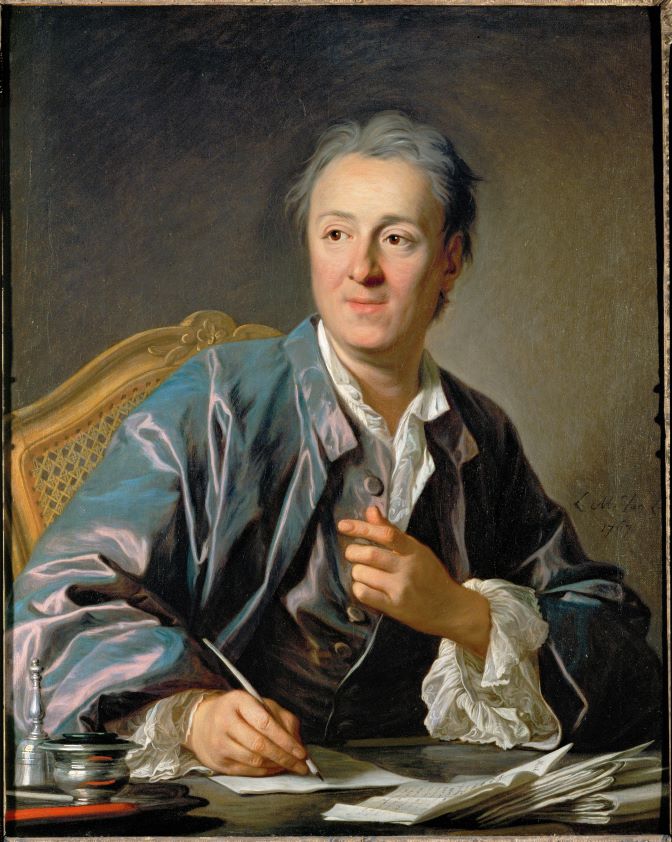
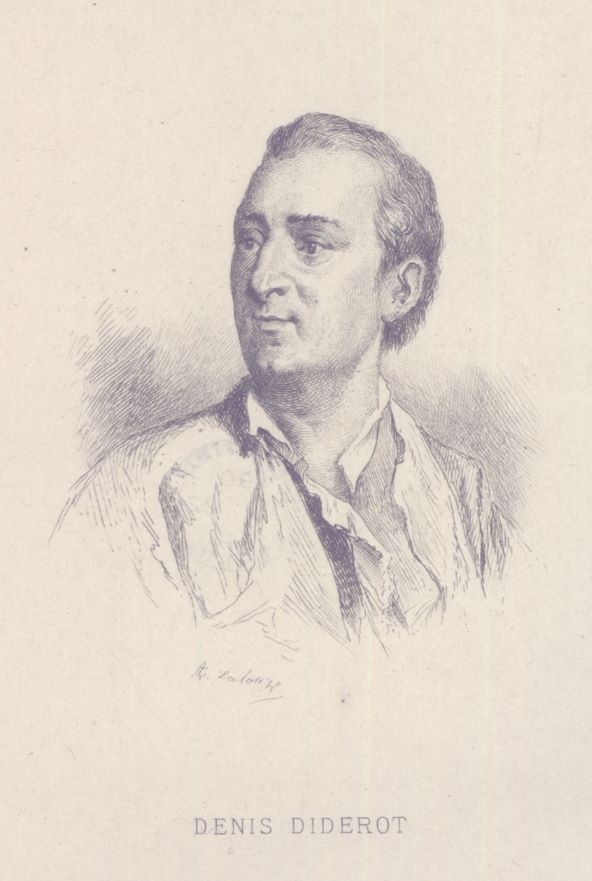
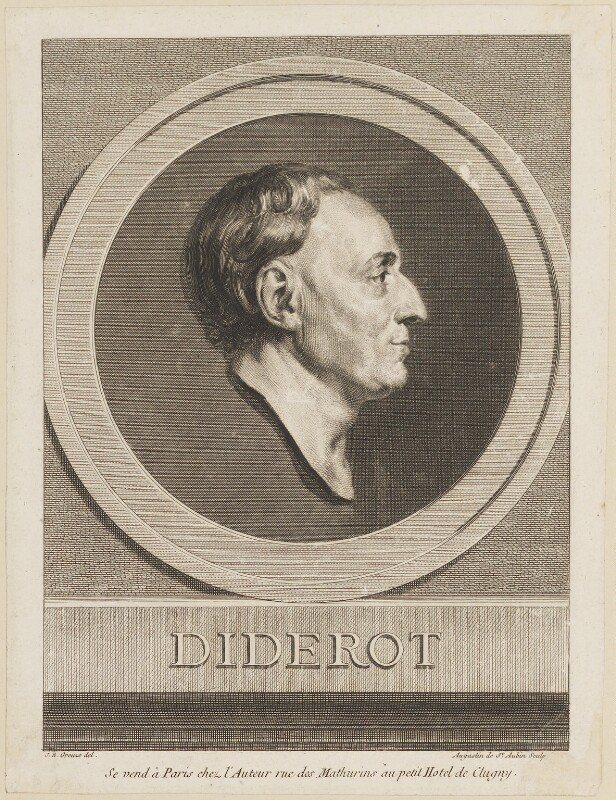
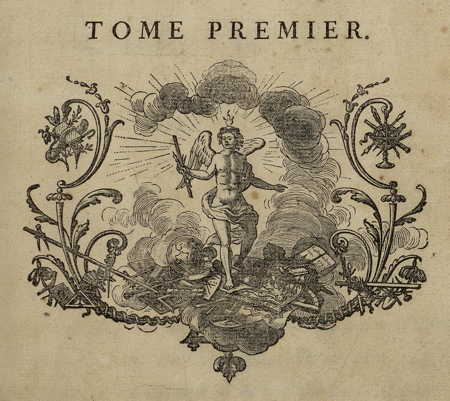
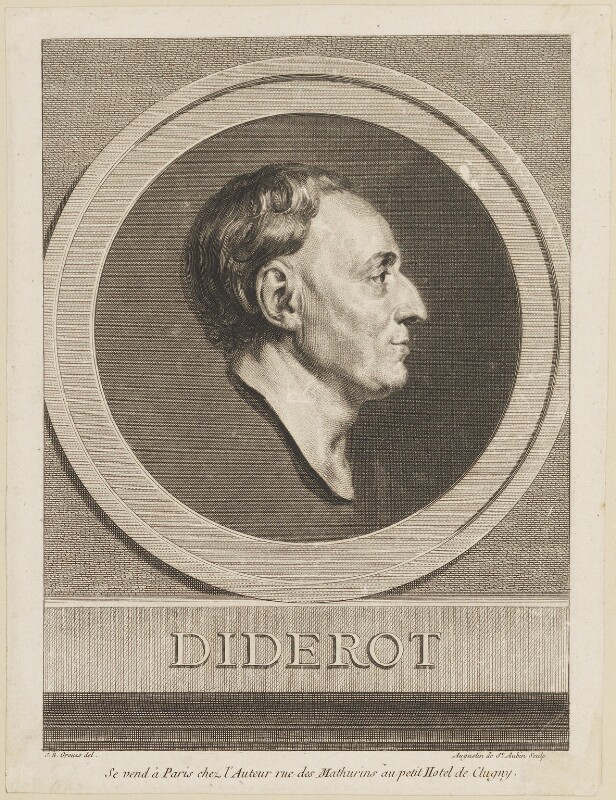 On radicalism, I'm happy to compromise with Hank and would settle for a moratorium. Ten years? I'd even go as low as five, if we could only get Jonathan Israel on board...
On radicalism, I'm happy to compromise with Hank and would settle for a moratorium. Ten years? I'd even go as low as five, if we could only get Jonathan Israel on board...